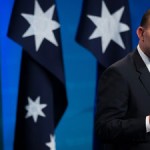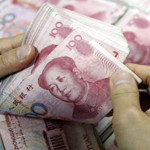G-20 Leaders to Endorse Cross-Border Investment Guidelines

Leaders of the Group of 20 nations meeting this weekend plan to endorse a set of principles designed to guide governments in devising cross-border investment policies, similar to how global agreements govern trade.
Officials described the G-20’s plan to endorse the nonbinding principles—spelled out in documents and official comments—as an effort to revive cross-border investment, which is sagging along with global trade and economic growth.
“This is a gloomy picture,” said James Zhan, a senior director at the United Nations Conference on Trade and Development and an expert on foreign direct investment who participated in drafting the principles. “No investment, no trade.”
Chinese President Xi Jinping had earlier cited investment principles among his government’s key priorities as host of this year’s G-20. The principles will “help foster an open, transparent” global environment for investment, according to a draft of the final communiqué leaders plan to issue at the conclusion of their Hangzhou summit on Monday.
A lack of consistency in the way nations regulate inbound investment complicates cross-border investing, according to business people and officials on the sidelines of the G-20 meeting. Getting public support for foreign purchases of land and companies remains a challenge for many governments.
The principles stop short of introducing the kind of rule-based governance that undergirds the World Trade Organization. Instead, the nonbinding G-20 plan includes general guidance for governments. It requests that they stick to investment policies that are transparent and ensure national and international rules remain coherent, while promoting sustainability and inclusion, according to a summary published by Unctad.
Meeting in Hangzhou, government officials and analysts say many around the world are growing as wary of foreign investment as they are about agreements to liberalize trade.
China’s arrival as a global investor is a source of discomfort for some politicians. In the days before G-20 kicked off, for instance, Chinese investors faced pushback in both Australia and the U.K. for proposed investment in high-profile projects.
Unctad recently forecast that global FDI in 2016 is likely to fall 10% to 15%. The agency warns that FDI flows are running 10% below the levels seen before the 2008 global financial crisis. While investment levels rose 38% in 2015 from a year earlier to $1.76 trillion, the highest since the global financial crisis, Unctad said the increase had more to do with individual mergers than sustainable flows into new operations that would generate longer-term benefits.
Australian Prime Minister Malcolm Turnbull, also speaking in Hangzhou on Sunday, welcomed the investment principles as “a useful first step in addressing cross-border risks,” according to his prepared remarks. The prime minister didn’t cite Australia’s recent decision to block, on national security grounds, a proposed investment by State Grid Corp. of China and Hong Kong’s Cheung Kong Infrastructure Holdings Ltd. for a controlling stake in Australia’s largest electricity network. In the past he has said the decision reflected unique circumstances.
Unctad’s Mr. Zhan described the G-20 adoption of the new principles as an important first step. “Money is cheap…the problem is weak demand but it’s also the problem of policies,” he said.
Source: WSJ – G-20 Leaders to Endorse Cross-Border Investment Guidelines





























